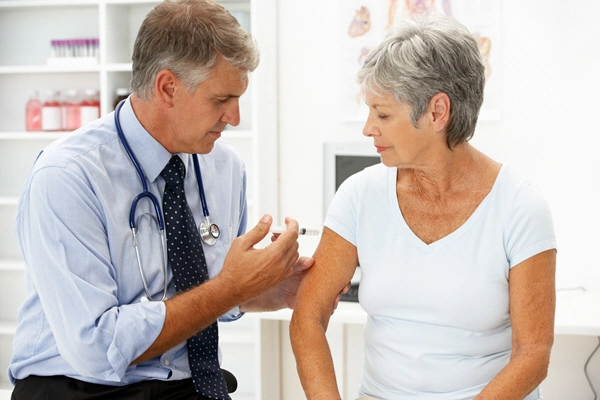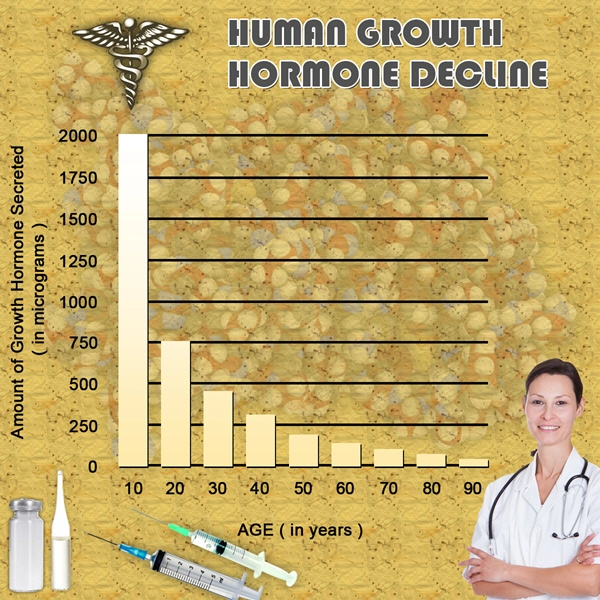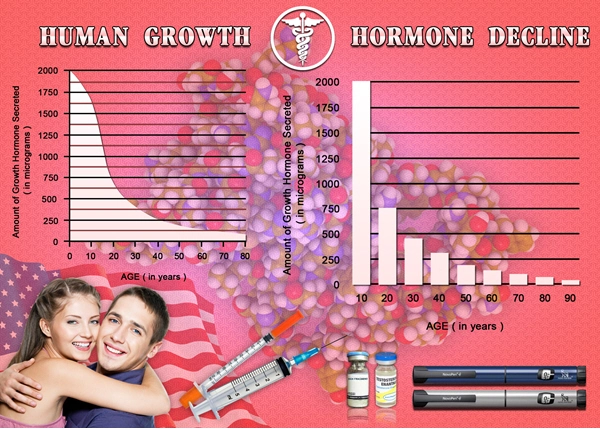Introduction
Testicular health is a critical aspect of male reproductive and overall well-being. Recent studies have begun to explore the intricate relationship between dietary habits and the health of the testes. This article delves into a dietary intervention study conducted among American males to understand how nutrition impacts testicular health. By examining the role of specific nutrients and dietary patterns, we aim to provide actionable insights that can enhance the health outcomes of men across the United States.
Study Design and Methodology
The study in question was a randomized controlled trial involving 200 American males aged 18 to 45, divided equally into a control and an intervention group. The intervention group received a tailored diet rich in antioxidants, omega-3 fatty acids, and essential vitamins and minerals known to support reproductive health. The control group continued their usual dietary habits. Over a period of six months, participants underwent regular health assessments, including blood tests and ultrasound examinations of the testes, to monitor changes in testicular health.
Key Nutrients and Their Impact
**Antioxidants**: Antioxidants such as vitamins C and E, selenium, and beta-carotene play a crucial role in protecting testicular cells from oxidative stress. The intervention group showed a significant increase in antioxidant levels, which correlated with improved testicular function and sperm quality.
**Omega-3 Fatty Acids**: These essential fats, found in fish like salmon and in flaxseeds, are known for their anti-inflammatory properties. The study found that participants with higher omega-3 intake exhibited better testicular blood flow and reduced inflammation, which are vital for maintaining testicular health.
**Vitamins and Minerals**: Key nutrients such as zinc and vitamin D are essential for testosterone production and overall testicular function. The intervention group, supplemented with these nutrients, demonstrated higher testosterone levels and improved testicular volume compared to the control group.
Dietary Patterns and Testicular Health
The study also examined the impact of overall dietary patterns on testicular health. Participants in the intervention group followed a Mediterranean-style diet, characterized by high intakes of fruits, vegetables, whole grains, and healthy fats. This diet was associated with better testicular health outcomes, including enhanced sperm motility and morphology. In contrast, the control group, which consumed a typical Western diet high in processed foods and sugars, showed no significant improvements in testicular health.
Implications for American Males
The findings of this study have significant implications for American males seeking to optimize their testicular health. By adopting a diet rich in antioxidants, omega-3 fatty acids, and essential vitamins and minerals, men can potentially enhance their reproductive health and overall well-being. Moreover, shifting towards a Mediterranean-style diet may offer additional benefits, such as reduced inflammation and improved cardiovascular health, which indirectly support testicular function.
Recommendations for Dietary Changes
Based on the study's results, American males are encouraged to incorporate the following dietary changes:
- **Increase Intake of Fruits and Vegetables**: Aim for at least five servings per day to boost antioxidant levels.
- **Consume Omega-3 Rich Foods**: Include fatty fish like salmon or mackerel at least twice a week, or consider omega-3 supplements if dietary intake is insufficient.
- **Ensure Adequate Vitamin and Mineral Intake**: Focus on foods rich in zinc (such as oysters and beef) and vitamin D (such as fortified dairy products and egg yolks), or consider supplementation if necessary.
- **Adopt a Mediterranean-Style Diet**: Emphasize whole grains, legumes, nuts, and olive oil, while reducing processed foods and sugars.
Conclusion
This dietary intervention study underscores the pivotal role of nutrition in maintaining and enhancing testicular health among American males. By making informed dietary choices, men can take proactive steps towards improving their reproductive health and overall quality of life. As research continues to evolve, it is essential for healthcare providers to incorporate nutritional counseling into routine care to support the testicular health of their male patients.

- Navigating Life After Testicular Cancer: A Guide for American Male Survivors [Last Updated On: December 28th, 2025] [Originally Added On: February 19th, 2025]
- Routine Check-ups Crucial for American Men's Testicular Health and Early Cancer Detection [Last Updated On: March 17th, 2025] [Originally Added On: March 17th, 2025]
- Testicular Health: Essential Guide for American Males' Physical and Mental Well-being [Last Updated On: March 17th, 2025] [Originally Added On: March 17th, 2025]
- Economic Challenges of Testicular Cancer Treatment for American Males: Costs and Support [Last Updated On: March 17th, 2025] [Originally Added On: March 17th, 2025]
- Testicular Health's Impact on Prostate Wellness in American Men: A Scientific Insight [Last Updated On: March 19th, 2025] [Originally Added On: March 19th, 2025]
- Testicular Health and Male Infertility: Diagnosis, Treatment, and Supportive Care [Last Updated On: March 19th, 2025] [Originally Added On: March 19th, 2025]
- Exercise Enhances Testicular Health in American Males: A Comprehensive Review [Last Updated On: March 20th, 2025] [Originally Added On: March 20th, 2025]
- Understanding Testicular Pain: Causes, Diagnosis, and Treatment for American Men [Last Updated On: March 20th, 2025] [Originally Added On: March 20th, 2025]
- Stress Impact on Testicular Health: Insights for American Men [Last Updated On: March 21st, 2025] [Originally Added On: March 21st, 2025]
- Diabetes and Testicular Health: Impacts and Management Strategies for American Men [Last Updated On: March 21st, 2025] [Originally Added On: March 21st, 2025]
- Testicular Health and Cardiovascular Disease: A Critical Link for American Men [Last Updated On: March 21st, 2025] [Originally Added On: March 21st, 2025]
- Educating Young American Males on Testicular Health: Importance and Impact [Last Updated On: March 21st, 2025] [Originally Added On: March 21st, 2025]
- Smoking's Harmful Effects on Testicular Health in American Males: A Comprehensive Analysis [Last Updated On: March 21st, 2025] [Originally Added On: March 21st, 2025]
- Testicular Cancer Screening: Guidelines and Self-Exam Techniques for American Men [Last Updated On: March 21st, 2025] [Originally Added On: March 21st, 2025]
- Ultrasound: Revolutionizing Testicular Health Diagnosis in American Males [Last Updated On: March 22nd, 2025] [Originally Added On: March 22nd, 2025]
- Testicular Health and Autoimmune Disorders: Insights for American Men [Last Updated On: March 22nd, 2025] [Originally Added On: March 22nd, 2025]
- Anabolic Steroids: Risks and Impacts on American Men's Testicular Health [Last Updated On: March 22nd, 2025] [Originally Added On: March 22nd, 2025]
- Testicular Health and Hormone Therapy: Essential Insights for American Men [Last Updated On: March 22nd, 2025] [Originally Added On: March 22nd, 2025]
- Viral Infections and Testicular Health: Impacts on Fertility in American Males [Last Updated On: March 23rd, 2025] [Originally Added On: March 23rd, 2025]
- Sleep Quality's Impact on Testicular Health: A Vital Link for American Males [Last Updated On: March 24th, 2025] [Originally Added On: March 24th, 2025]
- Radiation Therapy's Impact on Testicular Health: Insights for American Males [Last Updated On: March 24th, 2025] [Originally Added On: March 24th, 2025]
- Community Support Enhances Testicular Health Awareness in American Males [Last Updated On: March 24th, 2025] [Originally Added On: March 24th, 2025]
- Occupational Hazards and Testicular Health: Risks, Prevention, and Screening for American Workers [Last Updated On: March 24th, 2025] [Originally Added On: March 24th, 2025]
- Overcoming Psychological Barriers to Testicular Health Care in American Males [Last Updated On: March 25th, 2025] [Originally Added On: March 25th, 2025]
- Illicit Drugs' Impact on Testicular Health: Risks and Prevention for American Men [Last Updated On: March 25th, 2025] [Originally Added On: March 25th, 2025]
- Genetic Counseling's Vital Role in Preventing Testicular Cancer: Latest Advances [Last Updated On: March 25th, 2025] [Originally Added On: March 25th, 2025]
- Testicular Health: Vital for Preventing Chronic Diseases in American Males [Last Updated On: March 25th, 2025] [Originally Added On: March 25th, 2025]
- Endocrine Disruptors' Impact on Testicular Health: Risks and Mitigation for American Males [Last Updated On: March 25th, 2025] [Originally Added On: March 25th, 2025]
- Testicular Health in Aging American Men: Hormones, Monitoring, and Treatment Options [Last Updated On: March 25th, 2025] [Originally Added On: March 25th, 2025]
- Nutrition's Vital Role in American Men's Testicular Health and Fertility [Last Updated On: March 25th, 2025] [Originally Added On: March 25th, 2025]
- Public Health Campaigns Boost Testicular Health Awareness and Self-Exams in American Men [Last Updated On: March 26th, 2025] [Originally Added On: March 26th, 2025]
- Testicular Health and Reproductive Rights: Empowering American Men [Last Updated On: March 26th, 2025] [Originally Added On: March 26th, 2025]
- Socioeconomic Factors Impacting Testicular Health Care Access in American Males [Last Updated On: March 26th, 2025] [Originally Added On: March 26th, 2025]
- Breaking Barriers: Enhancing Testicular Health Awareness and Support for American Males [Last Updated On: March 26th, 2025] [Originally Added On: March 26th, 2025]
- Chemotherapy's Impact on Testicular Health in American Male Cancer Survivors [Last Updated On: March 26th, 2025] [Originally Added On: March 26th, 2025]
- Testicular Health and Cancer: Essentials, Detection, and Life After Diagnosis [Last Updated On: March 26th, 2025] [Originally Added On: March 26th, 2025]
- Lifestyle Diseases and Testicular Health: Strategies for American Men [Last Updated On: March 27th, 2025] [Originally Added On: March 27th, 2025]
- Antioxidants: Key to Enhancing Testicular Health and Fertility in American Men [Last Updated On: March 27th, 2025] [Originally Added On: March 27th, 2025]
- Testicular Health: Understanding Functions, Conditions, and Educational Needs for American Males [Last Updated On: March 27th, 2025] [Originally Added On: March 27th, 2025]
- Exercise Impacts on Testicular Health: Insights for American Men [Last Updated On: March 27th, 2025] [Originally Added On: March 27th, 2025]
- Testicular Health's Psychological Impact on American Men's Body Image and Masculinity [Last Updated On: March 27th, 2025] [Originally Added On: March 27th, 2025]
- Alcohol's Impact on Testicular Health: Risks and Mitigation Strategies for Men [Last Updated On: March 27th, 2025] [Originally Added On: March 27th, 2025]
- Vitamins A, D, E, C, B, and Zinc: Essential for American Men's Testicular Health [Last Updated On: March 27th, 2025] [Originally Added On: March 27th, 2025]
- Testicular Health: Breaking Stigma, Promoting Self-Exams and Open Dialogue [Last Updated On: March 27th, 2025] [Originally Added On: March 27th, 2025]
- Environmental Impacts on Testicular Health: Awareness and Action for American Males [Last Updated On: March 27th, 2025] [Originally Added On: March 27th, 2025]
- Testicular Health and Immune Function: A Vital Connection for Male Wellness [Last Updated On: March 27th, 2025] [Originally Added On: March 27th, 2025]
- Heat Exposure and Testicular Health: Impacts and Strategies for American Men [Last Updated On: March 28th, 2025] [Originally Added On: March 28th, 2025]
- Support Groups: Vital for American Men with Testicular Cancer [Last Updated On: March 28th, 2025] [Originally Added On: March 28th, 2025]
- Modern Lifestyles and Their Impact on American Men's Testicular Health [Last Updated On: March 28th, 2025] [Originally Added On: March 28th, 2025]
- Telemedicine: Revolutionizing Testicular Health Services for American Men [Last Updated On: March 29th, 2025] [Originally Added On: March 29th, 2025]
- Managing Chronic Testicular Pain: Strategies and Prevention for Male Health [Last Updated On: March 29th, 2025] [Originally Added On: March 29th, 2025]
- Testicular Health: Cancer, Fertility, and Lifestyle Impact on American Males [Last Updated On: March 30th, 2025] [Originally Added On: March 30th, 2025]
- Testicular Health: Self-Exams, Cancer Awareness, and Preventive Lifestyle for American Males [Last Updated On: March 31st, 2025] [Originally Added On: March 31st, 2025]
- Herbal Supplements for Testicular Health: Benefits and Considerations for American Men [Last Updated On: April 2nd, 2025] [Originally Added On: April 2nd, 2025]
- Testicular Health and Mental Resilience: A Holistic Approach for American Men [Last Updated On: April 3rd, 2025] [Originally Added On: April 3rd, 2025]
- Antibiotics' Impact on Testicular Health: Risks and Strategies for American Men [Last Updated On: April 5th, 2025] [Originally Added On: April 5th, 2025]
- Testicular Health and Environmental Impact: A Call for Policy Change [Last Updated On: April 5th, 2025] [Originally Added On: April 5th, 2025]
- Promoting Testicular Health: Education, Self-Exams, and Public Health Initiatives for American Males [Last Updated On: April 6th, 2025] [Originally Added On: April 6th, 2025]
- Advancements in Testicular Health and Reproductive Technologies in the U.S. [Last Updated On: April 6th, 2025] [Originally Added On: April 6th, 2025]
- Pesticide Exposure and Testicular Health in American Men: A Growing Concern [Last Updated On: April 7th, 2025] [Originally Added On: April 7th, 2025]
- Mental Health Professionals' Vital Role in Enhancing Testicular Health Awareness Among American Men [Last Updated On: April 8th, 2025] [Originally Added On: April 8th, 2025]
- Heavy Metals' Impact on Testicular Health in American Men: Risks and Prevention [Last Updated On: April 8th, 2025] [Originally Added On: April 8th, 2025]
- Empowering American Males: Understanding and Promoting Testicular Health [Last Updated On: April 10th, 2025] [Originally Added On: April 10th, 2025]
- Plastics' Chemical Impact on Testicular Health in American Men: A Comprehensive Analysis [Last Updated On: April 12th, 2025] [Originally Added On: April 12th, 2025]
- Physical Therapy's Vital Role in Managing Testicular Health Issues for American Men [Last Updated On: April 12th, 2025] [Originally Added On: April 12th, 2025]
- Enhancing Men's Health: Integrating Testicular Health into Workplace Wellness Programs [Last Updated On: April 13th, 2025] [Originally Added On: April 13th, 2025]
- Testicular Health: Science, Common Conditions, and U.S. Reproductive Policies for Men [Last Updated On: April 13th, 2025] [Originally Added On: April 13th, 2025]
- Testicular Health: Cancer Risks, Self-Exams, and Fertility for American Males [Last Updated On: April 15th, 2025] [Originally Added On: April 15th, 2025]
- Genetic Testing: Revolutionizing Testicular Health Management for American Men [Last Updated On: April 15th, 2025] [Originally Added On: April 15th, 2025]
- Air Pollution's Impact on American Men's Testicular Health: Emerging Research and Concerns [Last Updated On: April 15th, 2025] [Originally Added On: April 15th, 2025]
- Testicular Health Advocacy: Urgent Need for Policy Change and Public Awareness [Last Updated On: April 16th, 2025] [Originally Added On: April 16th, 2025]
- Testicular Health and Mental Well-being: A Holistic Guide for American Males [Last Updated On: April 16th, 2025] [Originally Added On: April 16th, 2025]
- Integrating Testicular and Mental Health Services for Holistic Male Care [Last Updated On: April 17th, 2025] [Originally Added On: April 17th, 2025]
- Educational Campaigns Boost Testicular Cancer Awareness and Early Detection in American Men [Last Updated On: April 18th, 2025] [Originally Added On: April 18th, 2025]
- Exercise Benefits for Testicular Health in American Men: A Comprehensive Guide [Last Updated On: April 18th, 2025] [Originally Added On: April 18th, 2025]
- Water Contaminants' Impact on Testicular Health: Risks and Mitigation Strategies [Last Updated On: April 18th, 2025] [Originally Added On: April 18th, 2025]
- Nutrition's Vital Role in American Males' Testicular Health and Function [Last Updated On: April 18th, 2025] [Originally Added On: April 18th, 2025]
- Environmental Pollutants and Testicular Health: An Environmental Justice Perspective [Last Updated On: April 21st, 2025] [Originally Added On: April 21st, 2025]
- Rising Testicular Cancer Trends and Early Detection in American Males [Last Updated On: April 21st, 2025] [Originally Added On: April 21st, 2025]
- Climate Change's Impact on American Men's Testicular Health: Risks and Mitigation [Last Updated On: April 21st, 2025] [Originally Added On: April 21st, 2025]



List of USA state clinics - click a flag below for blood testing clinics.
Word Count: 623


















































